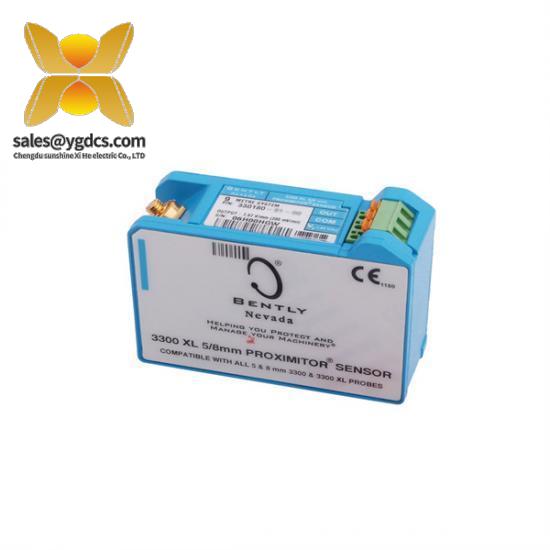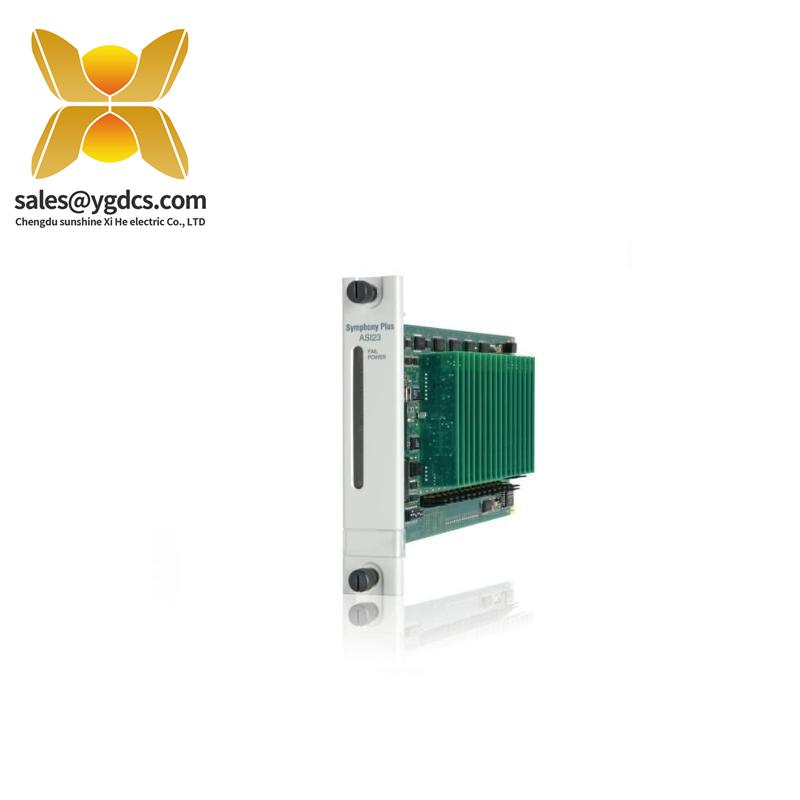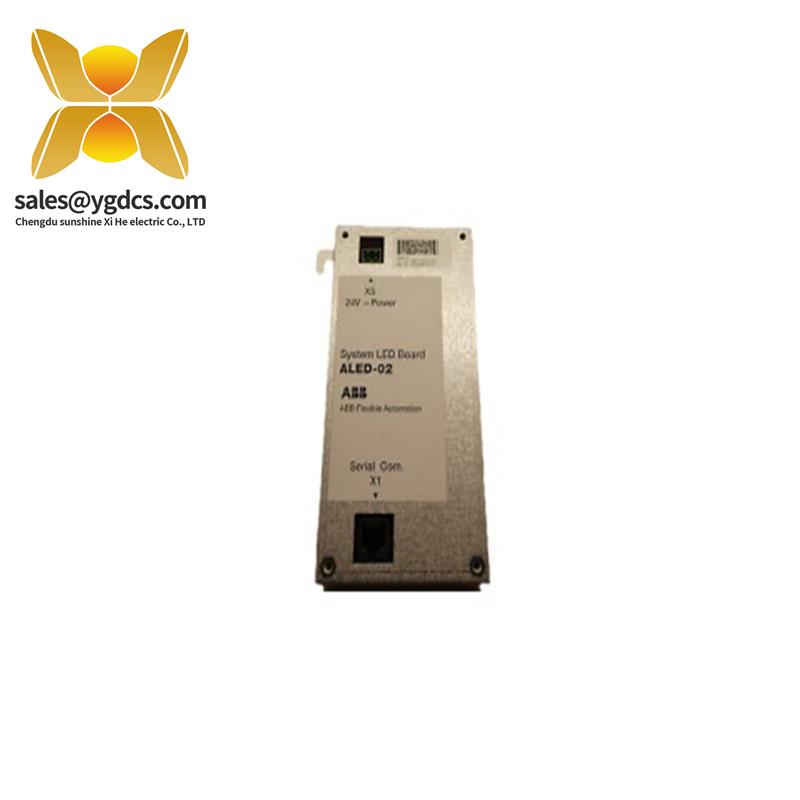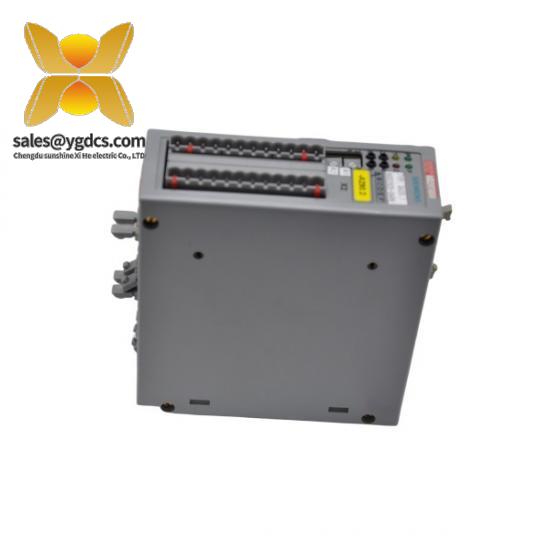Body text:
High bearing capacity sensor — PFCL201C 20KN 3BSE023409R20. With its innovative technology, excellent performance
and high reliability, this sensor sets a new benchmark in the field of industrial measurement.
Product overview
The PFCL201C 20KN 3BSE023409R20 is an innovation in ABB’s family of force sensors designed for industrial applications
requiring high bearing capacity measurements. It can withstand forces of up to 20 kN and is suitable for harsh industrial environments and demanding application scenarios.
Technical specification
High capacity design: The sensor is capable of measuring forces up to 20 kN for heavy industrial applications.
High precision measurement: Precision sensing technology is used to ensure the accuracy and repeatability of measurement results.
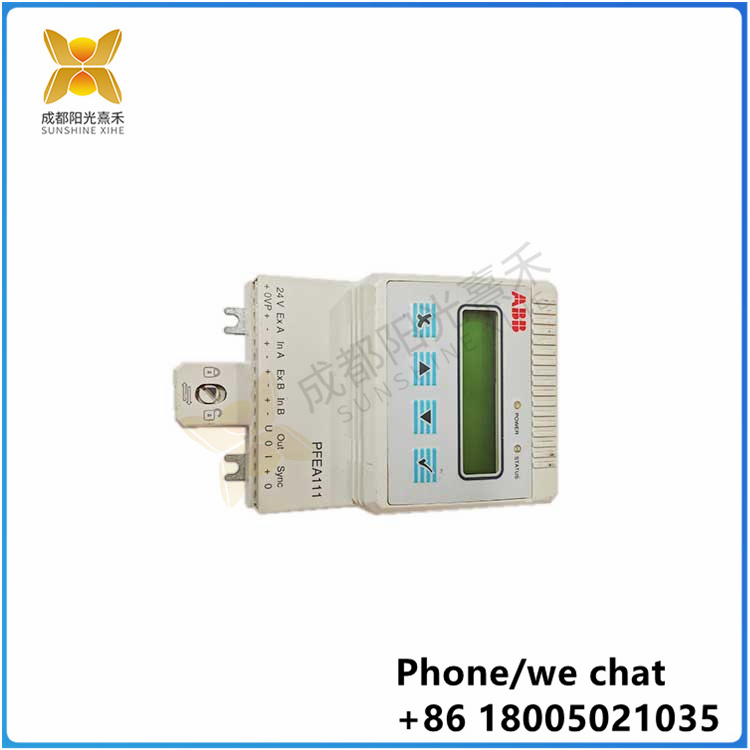
PFCL201C 20KN 3BSE023409R20
Industrial grade protection: With industrial grade protection, it can operate stably in extreme temperature, humidity and chemical environments.
Flexible output options: Support a variety of signal output methods, including analog and digital signals, easy to integrate with various control systems and devices.
Easy installation and calibration: The design takes the user’s installation and maintenance convenience into account, simplifying the calibration and maintenance process.
Application case
Heavy machinery: Used in lifting machinery and heavy equipment to monitor and control load forces to ensure safe operation.
Automated production lines: In automated production lines, for precise control of assembly pressure and product quality.
Material testing: In material testing applications, it is used to measure the mechanical properties of materials, such as tensile strength and compressive strength.
Robotics: In robotics, it is used to achieve precise force control and improve operation accuracy.
Structural health monitoring: In the health monitoring of structures such as Bridges and buildings, it is used to detect the stress state of the structure.
Market response
PFCL201C 20KN 3BSE023409R20 has received attention and praise from many industrial companies around the world since its launch.
User feedback shows that this sensor not only improves the accuracy and reliability of industrial automation, but also provides more innovative possibilities for industrial applications.
Conclusion
The introduction of the PFCL201C 20KN 3BSE023409R20 force sensor marks ABB’s continued innovation and leadership in industrial sensor
technology. We expect this sensor to be widely used worldwide and contribute to the development of industrial automation and intelligent manufacturing.+
PFCL201C 20KN 3BSE023409R20 The advantages and potential challenges of this sensor in practical applications are as follows:
Advantages:
High precision measurement: The sensor provides accurate and reliable force measurement for a variety of industrial environments, ensuring the accuracy of the measurement results “±0.5%FSO (full scale output) “.
Compact size: Easy to integrate into various equipment and systems, saving space “Overall size: 100mm × 50mm × 20mm”.
High sensitivity: It can respond quickly and accurately reflect the change of tension, providing reliable data support for industrial automation control.
Environmental adaptability: Designed for use in industrial environments, it can withstand vibration, temperature changes and humidity to ensure accurate measurement results in harsh conditions.
Easy installation and maintenance: The sensor is designed to be easy to install, including mechanical adjustment and electrical connection, and regular maintenance can extend the service life.
Communication capabilities: Some models may support digital communication with the controller, such as through the fieldbus protocol or Ethernet interface, to achieve real-time data transmission and remote monitoring.
Potential challenges:
High temperature operating environment: Although the sensor is designed with a wide operating temperature range of “-40 ° C to 85 ° C “, long-term stable operation at extreme high temperatures may be challenging.
Complex installation process: While installation and maintenance methods are designed to be simple, in some applications, the correct installation of high-precision sensors may require expertise and experience.
Cost issues: As high-performance sensors can cost more than standard sensors, companies need to weigh cost against performance.
Technical maintenance: Professional technical support and maintenance may be required to ensure its long-term stable operation and accurate measurement.



